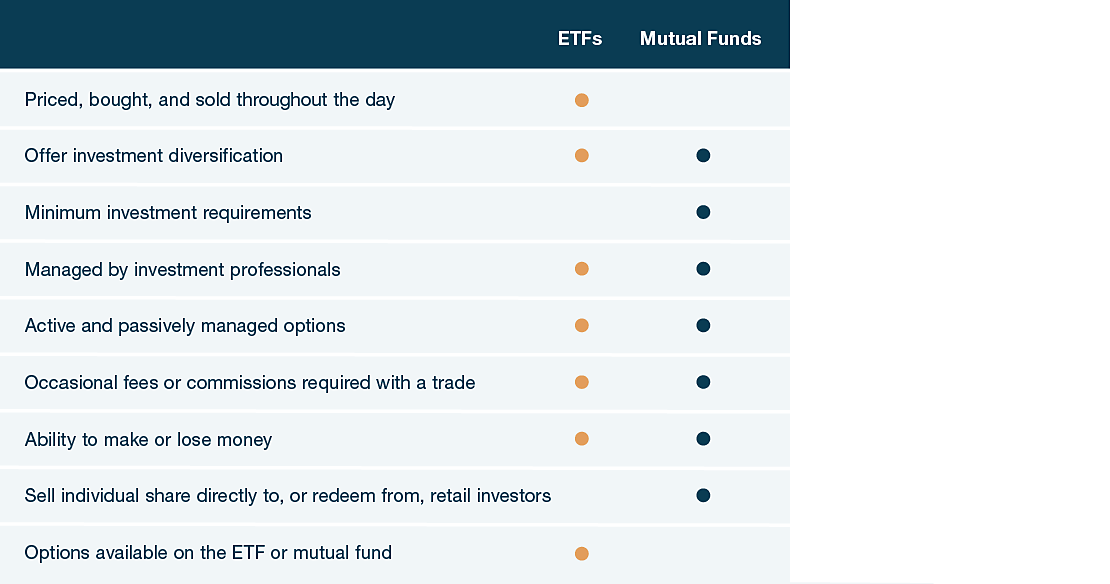They are priced and traded like stocks throughout the day and their share price is driven by the value of the underlying basket of individual securities. Also, ETFs are listed on a national securities exchange—such as the New York Stock Exchange—and are typically traded through a brokerage account.
Like mutual funds, ETFs charge a management fee that is deducted directly from the assets of the fund. With ETFs, a broker’s commission fee is also assessed each time an investor buys and sells shares.
ETF investors can see exactly what they own on a daily basis, helping them minimize overlap between sectors and individual securities that they own, creating greater overall portfolio diversification.
Similarities and Differences between ETFs and Mutual Funds

1. ETF sales are settled three days after a transaction, delaying the opportunity to reinvest funds.
